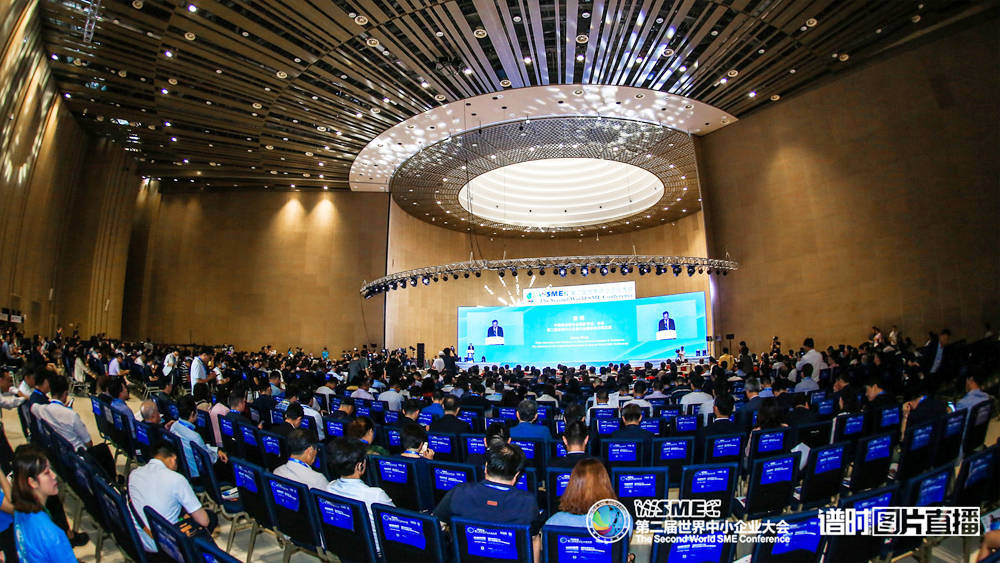
At the foot of Yanshan Mountain and beside Yanqi Lake. On June 22, more than 1,000 government, industry, academic, research and business elites from more than 30 countries and regions gathered at Beijing Yanqi Lake International Convention and Exhibition Center to jointly kick off The Second World SME Conference 2019. In the face of common challenges such as the downward pressure on the world economy, delegates focused on hot topics such as innovative cooperation of small and medium-sized enterprises and participation in the construction of the Belt and Road initiative, and explored ways for small and medium-sized enterprises to integrate into international development.
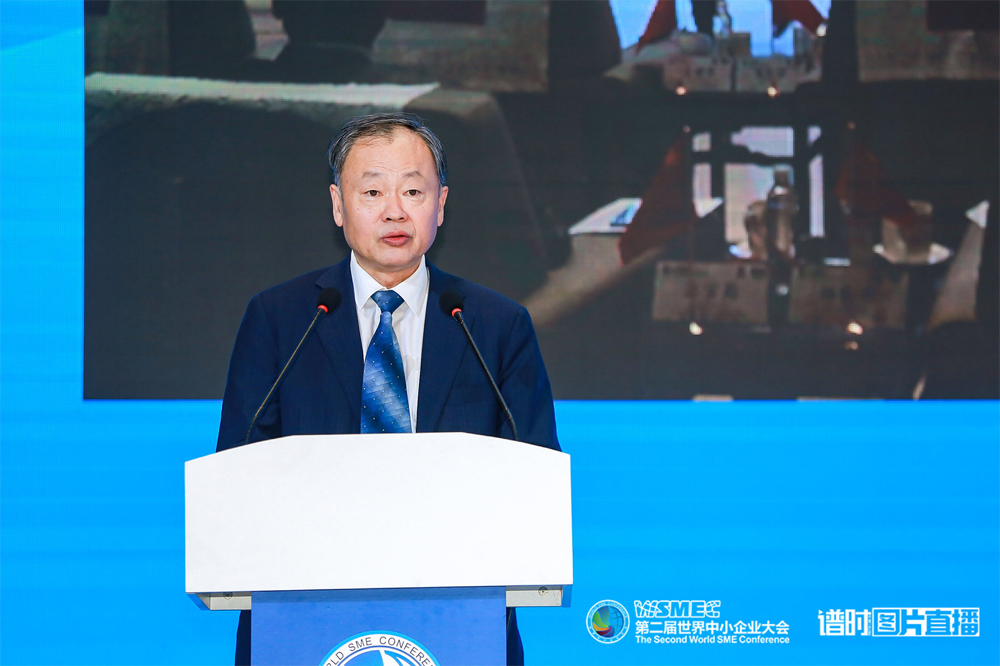
Jiang Ming, president of the China General Chamber of Commerce and co-chairman of The Second World SME Conference 2019, pointed out that in response to the UN Micro-, Small and Medium-sized Enterprises Day, the cooperation between The Second World SME Conference 2019 and its strategic partners, Pizhou City of Jiangsu Province and Hedong District of Tianjin City continued to deepen. The Chinese People's Association for Friendship with Foreign Countries, the United Nations Industrial Development Organization, the Belt and Road Forum for International Think Tank Cooperation, U.N Association of China, China Society For People's Friendship Studies, the China Green Foundation, China Advertising Association of Commerce, Small & Medium Business Corporation, North-East Asia Peace Economic Association of South Korea, Indian Association of Small and Medium Enterprises, CIHD, Public Diplomacy & Culture Exchange Center, Tsinghua University, Beijing Foreign Studies University, Shaanxi University of Chinese Medicine and Beijing Normal University provided intellectual support for the conference. This year, for the first time, Bloomberg Businessweek/China, a world-renowned financial media, became a co-host of the conference. In addition, the major mainstream media also gave more support to the conference than last year. People's Daily, Xinhua News Agency, Central Radio and Television Station, Reuters, Phoenix Satellite TV, China Daily, Dagong Wen Wei Po, Tencent and Toutiao paid close attention to the conference. NIO, Oxbridge International, Tian Yi Pension Services and other units participated in the conference and granted support.
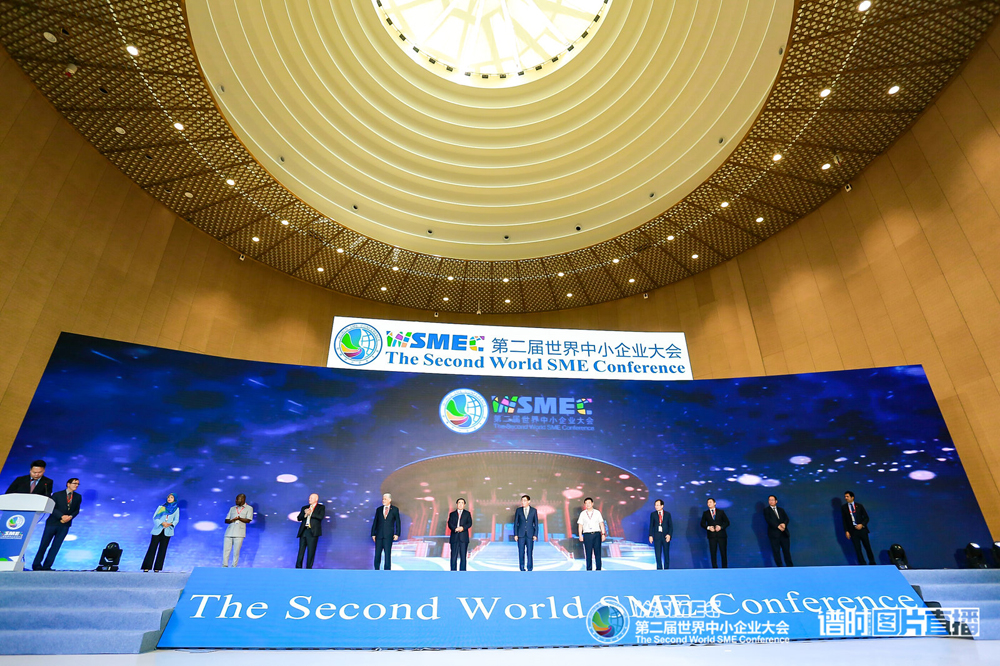
Jiang Ming pointed out that in order to promote the integration of large, medium and small enterprises and realize the coordination of industrial chains, more than 20 representatives from the world's top 500 enterprises, and heads of many central enterprises, state-owned enterprises, large private enterprises, little giant enterprises and leading enterprises in single field attended the conference. This fully shows that this conference conforms to the wish of small and medium-sized enterprises for common development and the trend of cooperation of small and medium-sized enterprises with countries along the Belt and Road.
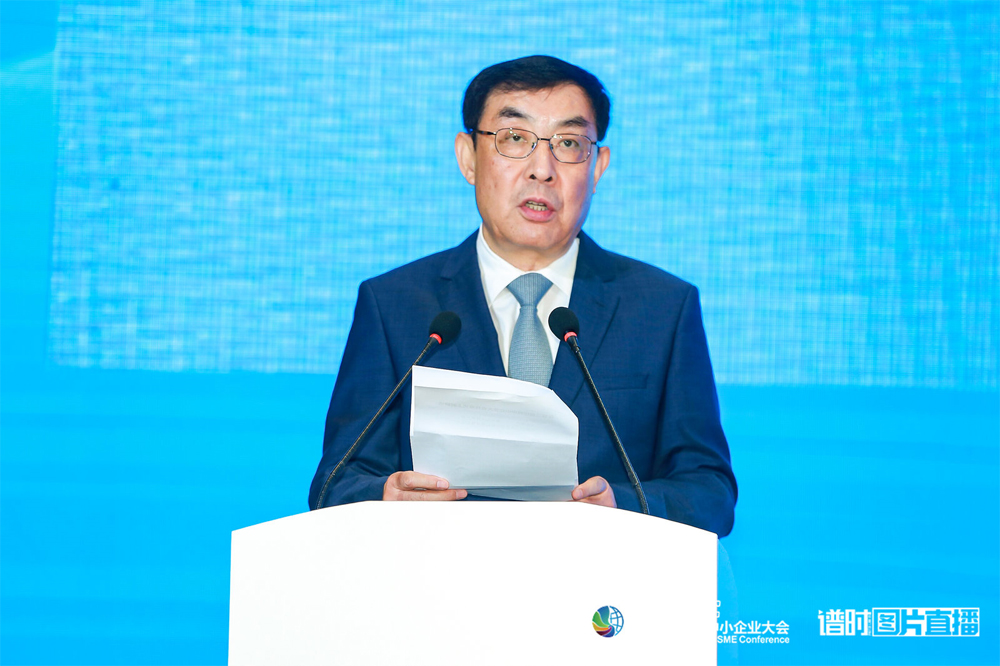
Ma Peihua, vice-chairman of the 12th National Committee of the Chinese People's Political Consultative Conference, pointed out that today China is both a world factory and a world market. Over the past 40 years of reform and opening up, numerous small and medium-sized enterprises have flourished. Under the leadership of entrepreneurs, groups of enterprises have developed into an indispensable force in promoting economic and social development and have played an important role in stabilizing growth, promoting innovation, increasing employment and improving people's livelihood. Over the past 40 years or so, small and medium-sized enterprises have contributed more than 50% of tax revenue, more than 60% of GDP, more than 70% of technological innovations, more than 80% of urban employment, and more than 90% of the number of enterprises. It can be said that China's rapid economic development is attributed to small and medium-sized enterprises to a great extent.
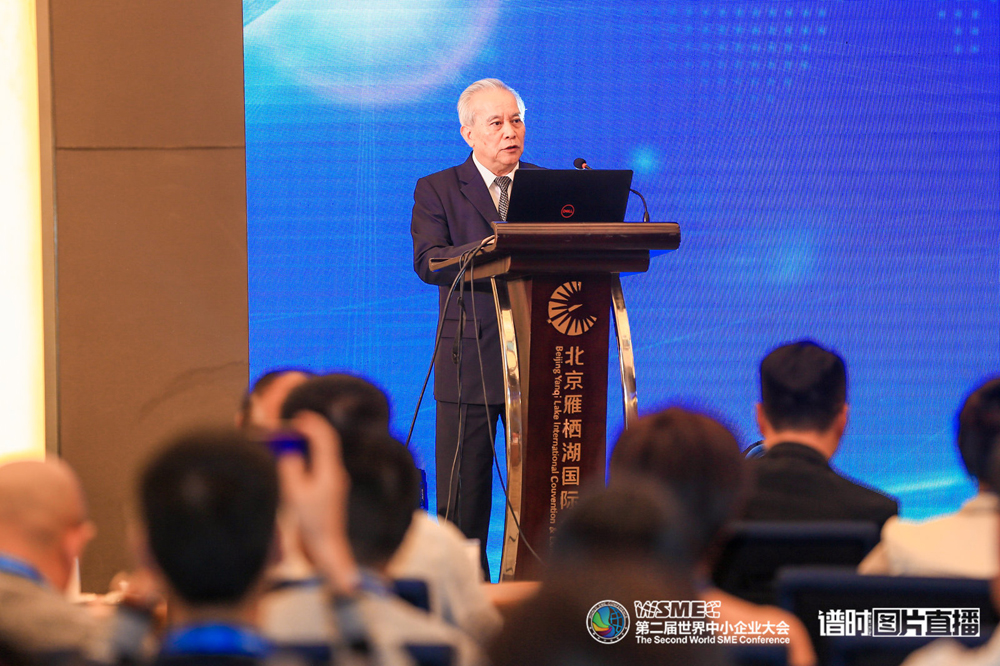
Small and medium-sized enterprises grow up in globalization and are important participants in the global industrial chain. They can synergize to reduce costs, and enter new markets and acquire new technologies through global enterprise cooperation. They are still participants in climbing to a higher value chain. Wang Qinmin, vice-chairman of the 12th National Committee of the Chinese People's Political Consultative Conference, said at the International Cooperation Summit for the 'Belt and Road' Green Development that small and medium-sized enterprises shall seek a suitable position and value in the global industrial chain so that they can win in the global competition.
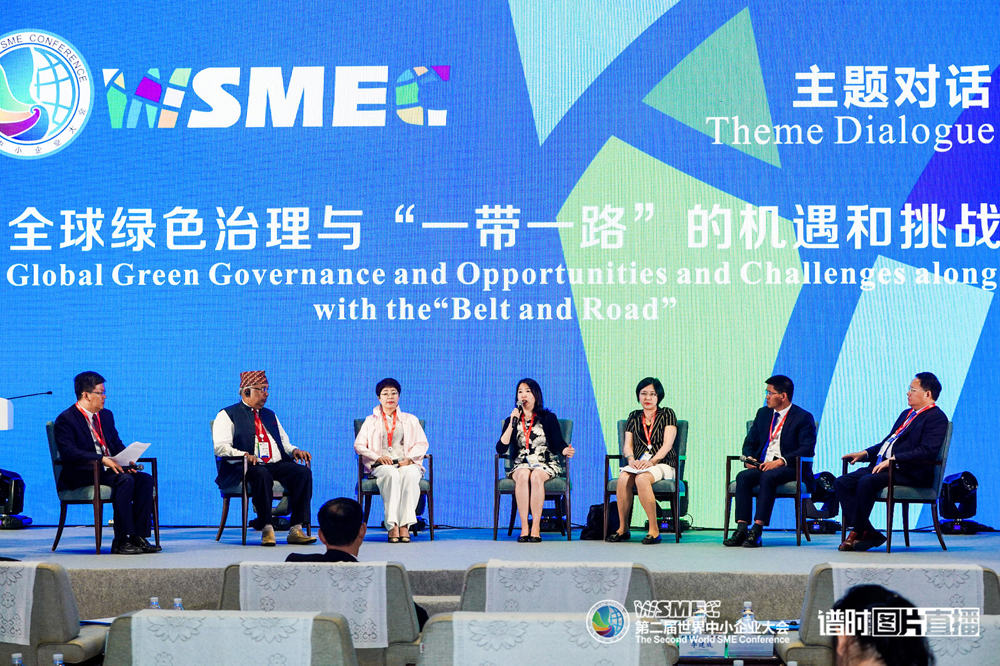
Wang Qinmin pointed out that building a global cooperation and exchange platform for small and medium-sized enterprises has become a new highlight. In response to the UN Micro-, Small and Medium-sized Enterprises Day, the World SME Conference is an international exchange activity dedicated to and serving small and medium enterprises, and also one of the important platforms to introduce foreign small and medium enterprises into China and Chinese small and medium enterprises into the world. Through this platform, the China Association for Small & Medium Commercial Enterprises will give full play to its advantages of marketization, internationalization and diversification and take the initiative to take on social responsibilities. It will provide on-site communication and coordination, on-site inspection at the later stage, technical innovation support and other services for entrepreneurs present, so as to help Chinese small and medium-sized enterprises to further broaden and deepen cooperation, and to achieve common development with foreign small and medium-sized enterprises.
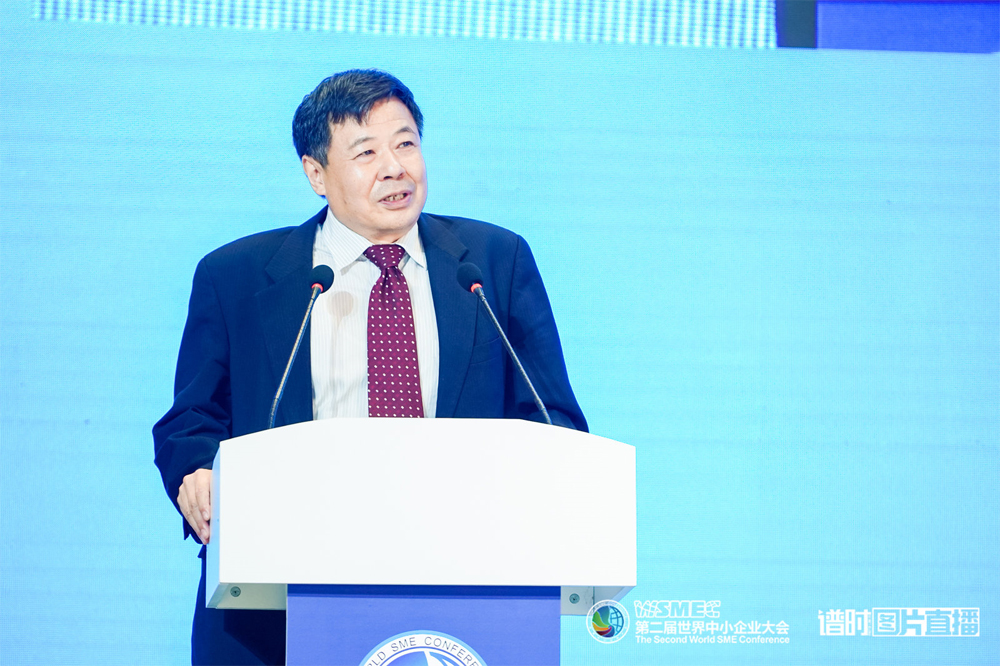
Zhu Guangyao, Former Vice Minister of Finance delivered a keynote speech in Globalization: Opportunities and Challenges for Small and Medium-sized Enterprises. The global economy is undergoing huge transformation, he said. Populism and unilateral protectionism have had a major impact on economic globalization. Faced with this situation, we must seize the opportunity, and the major countries in the world shall shoulder their responsibilities.
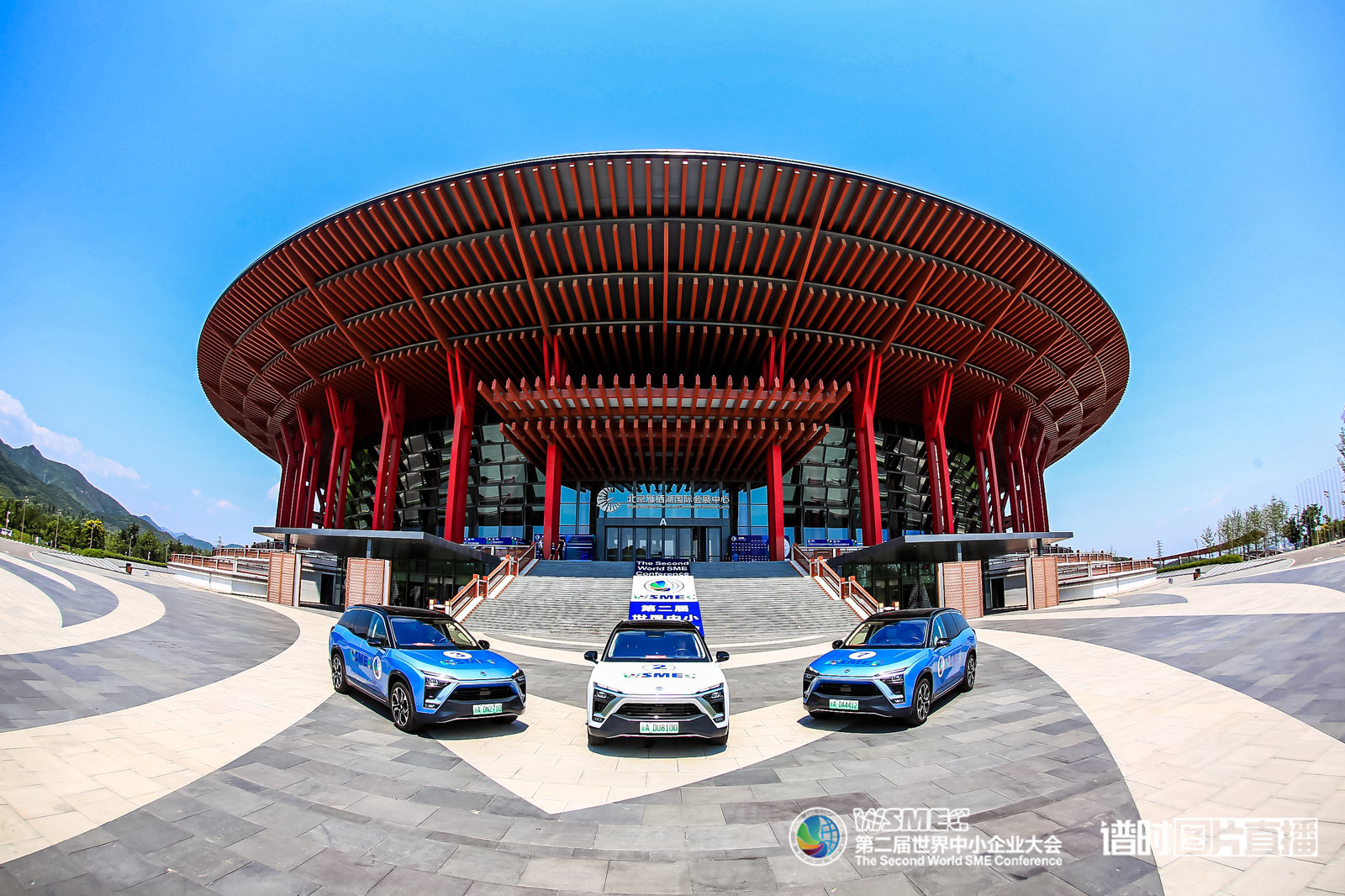
Zhu Guangyao believes that our top priority is to solve two problems. One is the conflict between rising powers and established powers, and the other is the chaos in world order. China and the United States must work together to maintain the world order. In terms of this, he put forward four suggestions: The first is to strengthen the strategic guidance of the heads of the two countries, and establish regular meetings between the heads so as to ensure that Sino-US relations are advancing stably in coordination. The second is to give full play to the role of the existing four high-level dialogue mechanisms and the cooperation mechanism between provinces, states and cities in China and the United States. The third is to give full play to the cooperation between entrepreneurs of the two countries. The fourth is to strengthen the role of think tanks of the two countries in various fields, including guiding the public and the media.
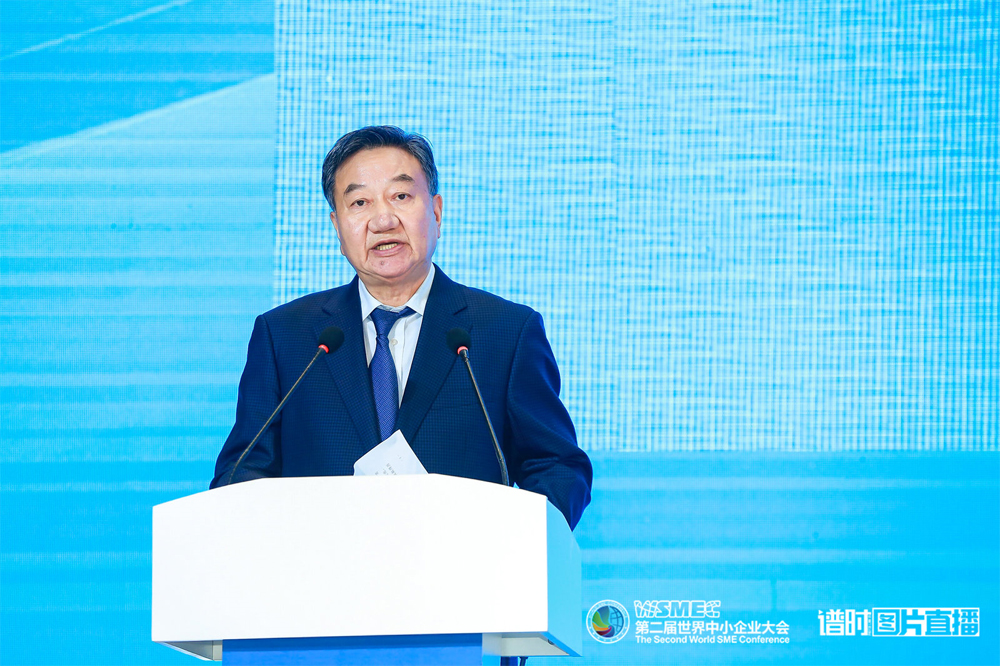
Jiang Zengwei, president of the China Chamber of International Commerce, said that the China Chamber of International Commerce will give full play to its own advantages and help small and medium-sized enterprises to make good use of both international and domestic markets and resources, so that they can become world-class enterprises with global competitiveness.
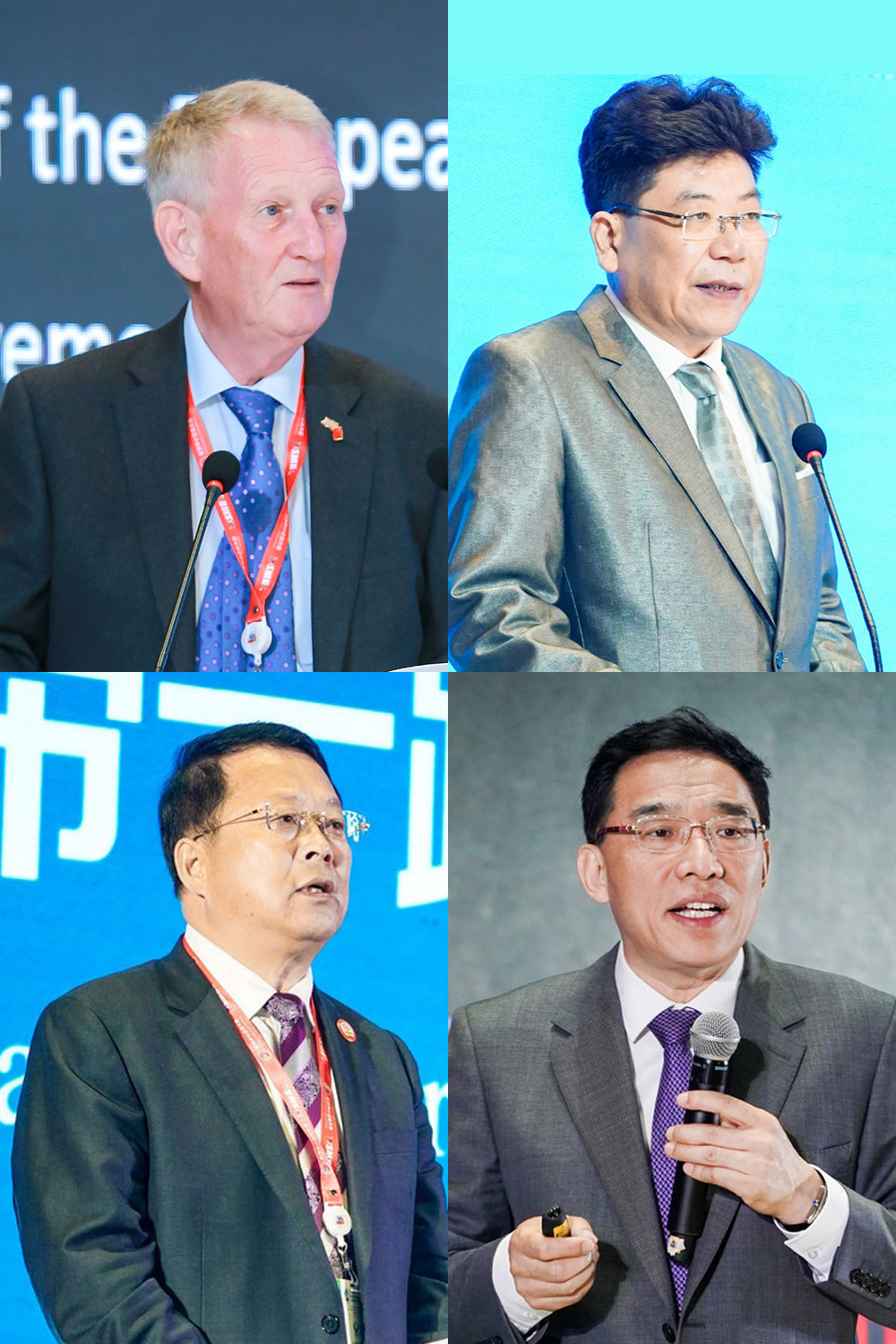
'With the rapid regional economic integration, small and medium-sized enterprises can seize the market share of transnational enterprises.' Zuo Lingyun, vice-chairman of the China Association for Small & Medium Commercial Enterprises, said. Zuo Lingyun believes that economic globalization emphasizes the development of transnational enterprises, but this will not affect the development of small and medium-sized enterprises. To a certain extent, the development of transnational enterprises provides opportunities and living space for the development of small and medium-sized enterprises. He said that many parts and components of transnational enterprises are produced all over the world, and small and medium-sized enterprises should participate in the production lines of transnational enterprises, so as to promote their own development, and integrate into international cooperation.
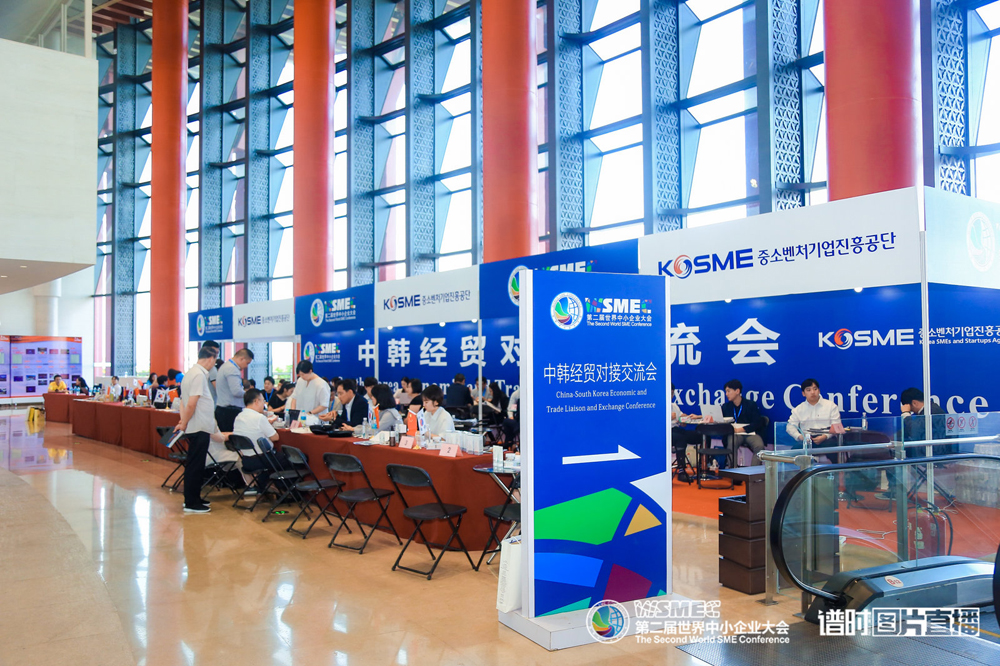
At present, economic globalization is constantly encountering obstacles due to anti-dumping and other factors. However, regional economic integration has solved many trade barriers and driven development, which provides opportunities for the intra-regional cooperation and development of small and medium-sized enterprises.
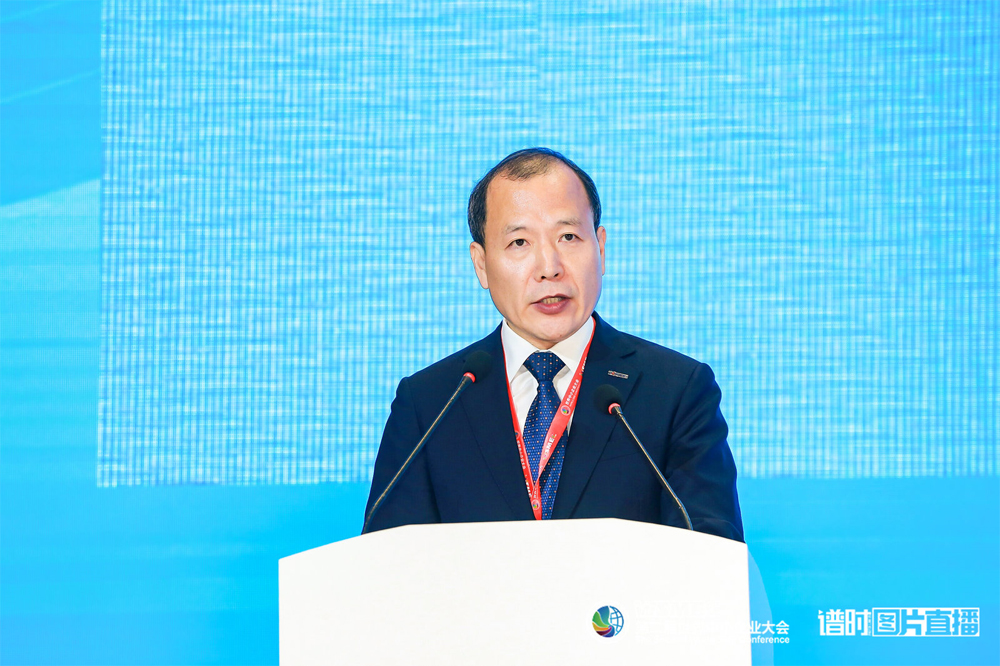
Lee Sung-Hee, Minister of Global Cost of Small & Medium Business Corporation, said that Northeast Asia has strong geographical advantages and cultural origins. The intra-regional economic and trade exchanges have promoted the common economic development of the region. In particular, in recent years, countries in the region have given full play to their advantages and regional trade exchanges are frequent. As an important force in economic development, small and medium-sized enterprises have played an important role during this period, and with the deepening of bilateral cooperation, the cooperation between small and medium-sized enterprises will continue to expand.
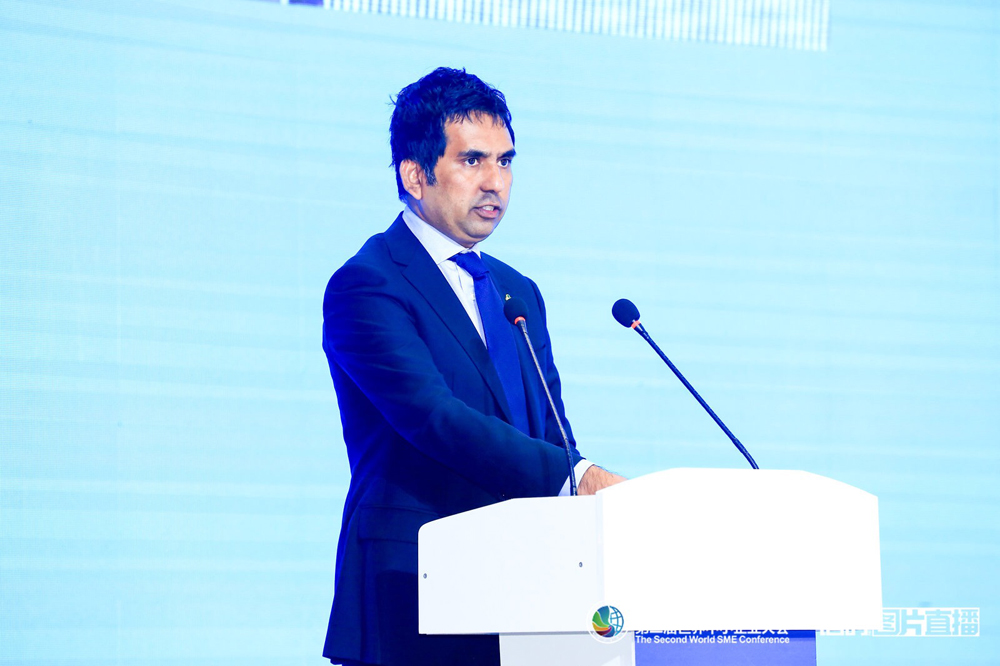
Mohamed Saeed, former special envoy of the Maldivian President and minister of economic development, believes that economic globalization is the direction of enterprise development, but small and medium-sized enterprises should consider regional advantages when developing. The proposal of the Belt and Road initiative has promoted economic exchanges, and if small and medium-sized enterprises further give full play to their advantages and integrate into regional economic cooperation, their development will accelerate.
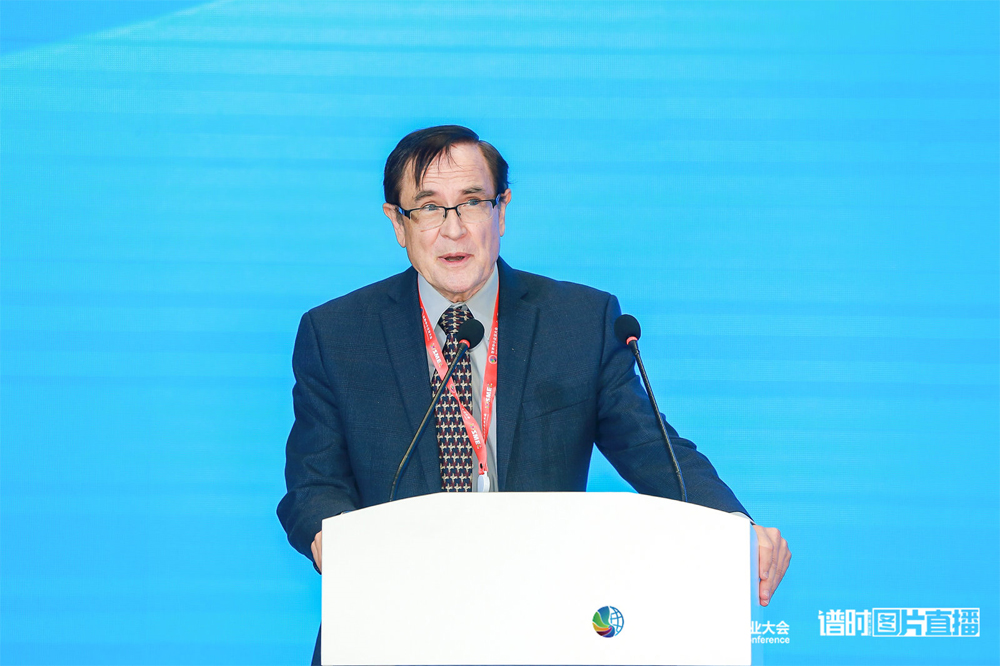
In his keynote speech, Charles E. Morrison, former president of the world-renowned think tank, the East-West Center of the United States, said that innovation and openness are closely linked. Product innovation means being able to enter a huge market, such as China, which has done a good job in consumer-oriented product innovation, and has created an environment where opinions of scientific innovation can be exchanged freely and quickly. China is also constantly accepting innovations from other regions and other sources.
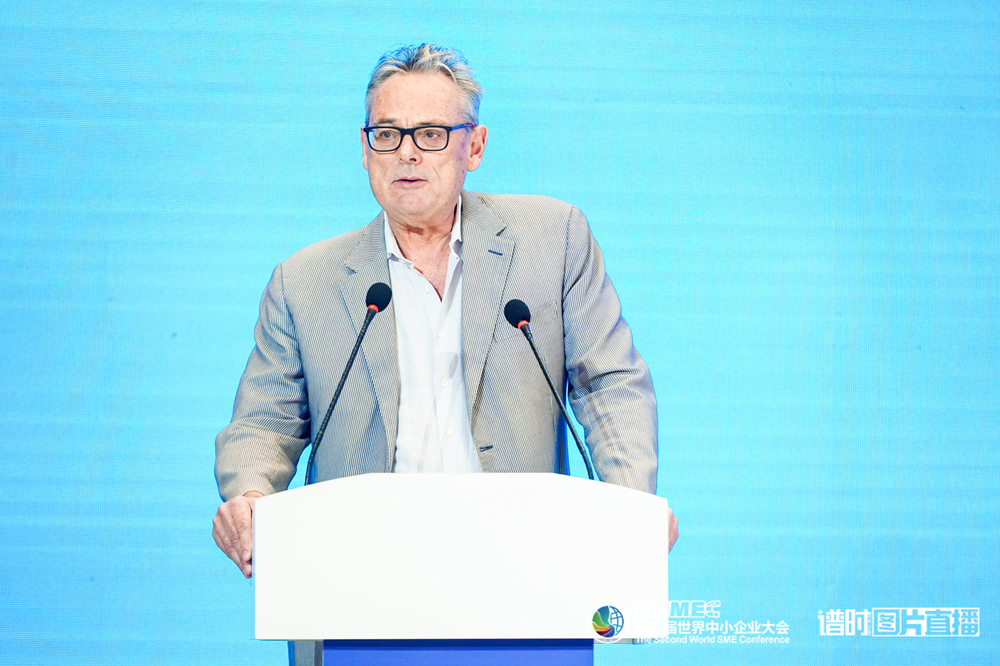
Geoff Raby, Former Australian Deputy Foreign Minister and Ambassador to China, pointed out in his speech: The unilateral actions of the United States, whether or not they are in violation of the commitment of the United States to join the World Trade Organization (WTO), run counter to the principles of the multilateral trading system. To some extent, the United States has destroyed the system based on rules, which should attract the attention of all countries, not just China. All countries, including Australia, need to urge the United States to abide by the norms in this system, which has served the international community well in the past 70 years. The problem will inevitably be solved through negotiations and diplomatic means, but when it will be solved and what costs will be paid by all countries remain to be seen.
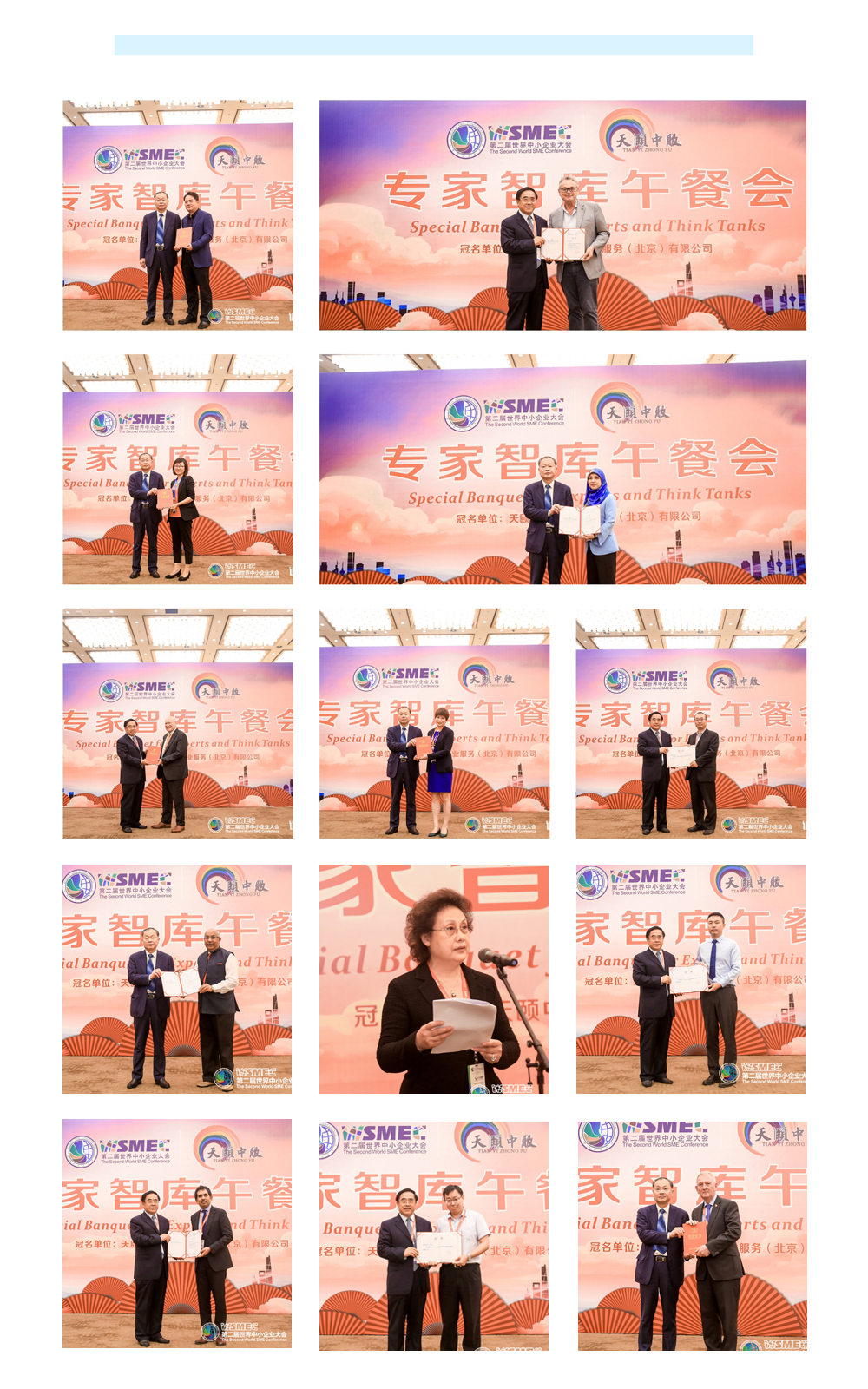
At the think tank expert luncheon of The Second World SME Conference 2019 held on the same day, Geoff Raby, Former Australian Deputy Foreign Minister and Ambassador to China and other well-known diplomats, experts and scholars, as well as a number of senior executives from the world's top 500 enterprises such as Dow, Mcdonald's, Cargill, KPMG, Louis Dreyfus and Bunge were employed as international advisory members of the China Association for Small & Medium Commercial Enterprises.
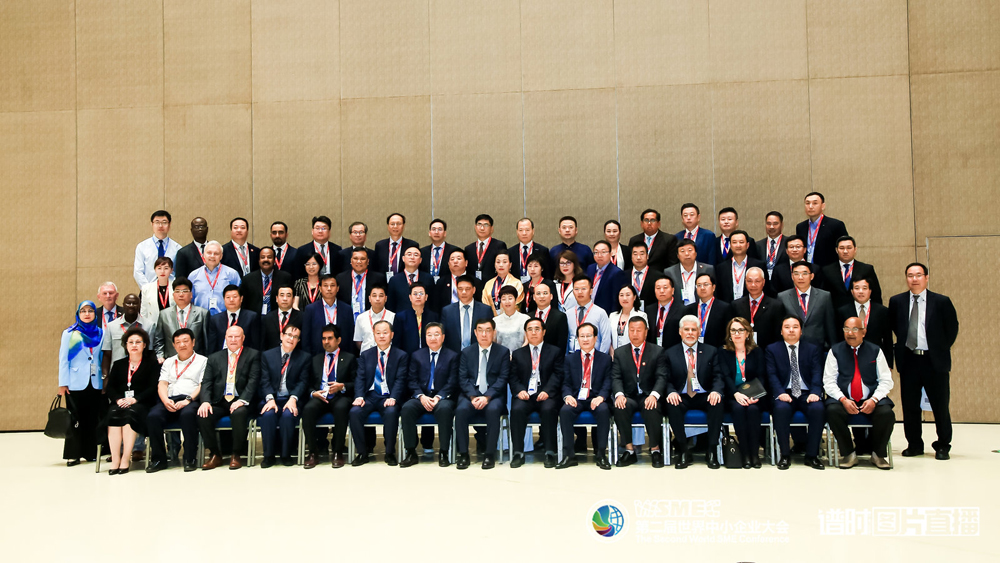
A series of activities such as the International Cooperation Summit for the 'Belt and Road' Green Development, the 2nd Blockchain World Forum, the Forum of Future Leaders of Enterprises, and the China-South Korea and China-Malaysia Project Coordination Meeting will be held. The Light for Entrepreneurs exhibition held during the conference attracted the attention of the participants. Speakers from Russia, the United States, Britain, Germany, Finland, Malaysia, Ukraine, Canada, Japan, South Korea, Malaysia, Mali, Turkey, Sierra Leone, Sudan, Kenya, Egypt, Maldives, Mongolia, Bulgaria, Finland and other countries will make speeches in the following forums. The conference will end on the 23rd and after which, proposals will be issued.